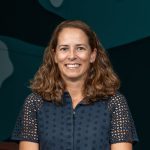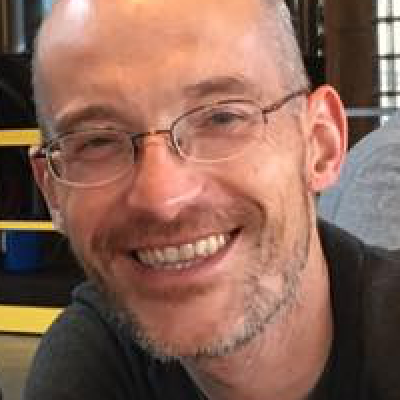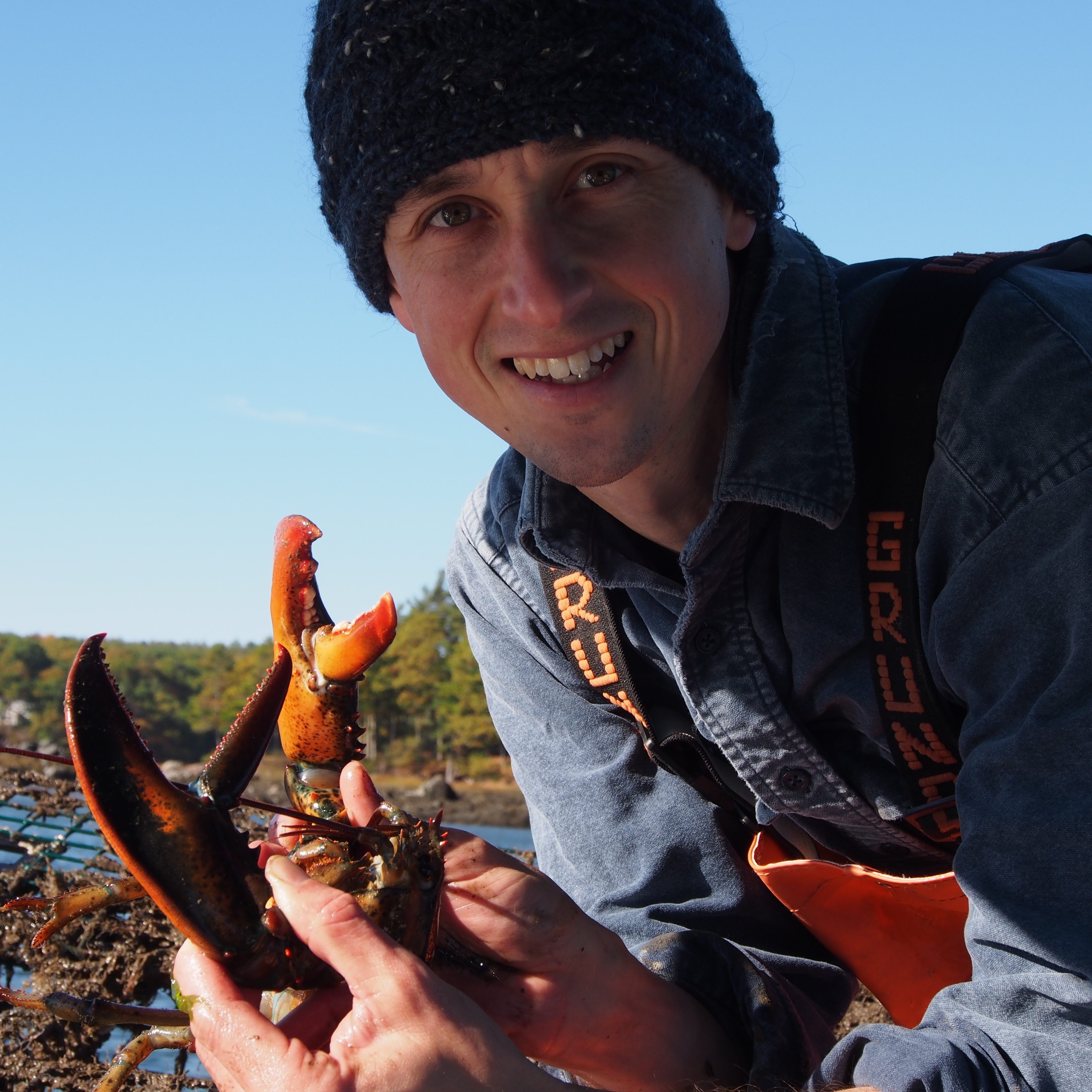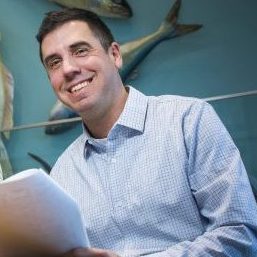CINAR Fellows in Quantitative Fisheries and Ecosystem Science
The goal of this CINAR fellowship program is to engage early career scientists in research that supports the training and education of the next generation of stock assessment scientists, ecosystem scientists, and economists and improves the assessment and management of living marine resources in the Northeast region. With funding provided by NOAA Fisheries QUEST program, the Northeast Fisheries Science Center, and CINAR’s Education program, these two-year fellowships will provide support to early career faculty at CINAR partner institutions who are working on assessment and management related issues and who are committed to education and training. Each fellowship is paired with scientists at the Northeast Fisheries Science Center to further strengthen the links between research, assessments, and management.
The NOAA Northeast Fisheries Science Center and the Cooperative Institute for the North Atlantic Region (CINAR) are pleased to announce the appointment of four CINAR Fellows in Quantitative Fisheries and Ecosystems Science in 2023: Robert Griffin (UMass Dartmouth School of Marine Science and Technology), Kathy Mills (Gulf of Maine Research Instituted), Lisa Kerr (University of Maine), and Mei Sato (Woods Hole Oceanographic Institution). Fellowship recipients in 2020 included Daniel Cullen (University of Maryland Eastern Shore), Gavin Fay (UMass Dartmouth School of Marine Science and Technology), Joshua Stoll (University of Maine), Geneviève Nesslage (University of Maryland Center for Environmental Science), and John Wiedenmann (Rutgers University).
Information about these CINAR Fellows and their research and education activities is summarized below.
2023 CINAR Fellows:

Lisa Kerr, Ph.D.
School of Marine Sciences at the University of Maine
Dr. Lisa Kerr is an Associate Professor in the School of Marine Science at the University of Maine. She is broadly interested in research that informs progress toward sustainable management of marine fisheries and ecosystems as a whole. A major goal of her lab’s current work is to bring climate information to bear on fishery stock assessment and management processes. She regularly advises on regional, national, and international fisheries management issues.
During her CINAR Fellowship, she will collaborate with stock assessment scientist Dr. Larry Alade on the integration of climate information into aspects of stock assessments for groundfish stocks. This work will expand on recent climate-integrated modeling conducted through the American Plaice Research Track stock assessment process and new research on yellowtail flounder. The proposed work will contribute to the collaborative Northeast Climate Integrated Modeling (NCLIM) initiative (https://github.com/Northeast-Climate-Integrated-Modeling) and NEFSC’s ongoing efforts to implement climate-enhanced stock assessments that support an ecosystem approach to fisheries management.
Learn more about Lisa's research here.

Robert Griffin, Ph.D.
School for Marine Science and Technology at UMass Dartmouth
Rob Griffin is a research assistant professor at the School for Marine Science and Technology at UMass Dartmouth. His expertise is in resource and environmental economics with a focus on coastal and ocean systems. This work has concentrated on two main themes: coastal and ocean planning and how to make decisions when there are conflicts/synergies between uses; and measuring the often intangible ecosystem service values of coastal and ocean habitats.
During his CINAR fellowship, he be working with Dr. Jason Link on measuring economic aspects of ecosystem based fisheries management, in particular investigating the extent to which economic value is eroded as fish stocks experience overfishing. The research will incorporate panel data on economic and ecological conditions across Large Marine Ecosystems in U.S. waters to investigate revenue and effort dynamics across a gradient of ecosystem overfishing conditions. The CINAR fellowship will also support offering a graduate level course at UMass Dartmouth that provides students with a background in economic concepts and theory for contemporary marine environmental issues.
Learn more about Rob's research here.

Kathy Mills, Ph.D.
Gulf of Maine Research Institute
Dr. Kathy Mills is a Research Scientist at the Gulf of Maine Research Institute, where she leads the Integrated Systems Ecology Lab. She studies ecosystem change and fish-ecosystem relationships in the Gulf of Maine and Northeast U.S. Shelf regions to understand (1) how physical and ecosystem conditions are changing; (2) how these changes affect fish populations, biological communities, and marine fisheries; and (3) how fisheries and fishing communities can effectively respond.
During her CINAR fellowship, she will collaborate with Dr. Scott Large to investigate functional impacts of climate change on the Northeast Shelf marine ecosystem. This research will adopt a trait-based approach to understand how different types of species are responding to ocean warming and marine heatwaves, and how these responses are influencing fish community characteristics and dynamics. Results will contribute to State of the Ecosystem reports and ecosystem-based fisheries management planning efforts in the region.
Learn more about Kathy's research here.

Mei Sato, Ph.D.
Woods Hole Oceanographic Institution
Mei Sato is an Assistant Scientist in the Biology Department at the Woods Hole Oceanographic Institution. Her research focuses on biological-physical interactions, addressing how the environment influences animal behavior and distributions in coastal ecosystems and how those interactions affect trophic dynamics including zooplankton, fish, and marine mammals. In order to address problems across a range of temporal and spatial scales, she uses active acoustics as a remote sensing technique combined with net sampling and physical measurements.
During her CINAR fellowship, she will collaborate with Dr. Anna Mercer to investigate the acoustic characteristics of Northern shortfin squid on the Mid-Atlantic Bight continental shelf. This research will combine high-resolution acoustic and squid catch data collected by commercial fishing vessels to quantify intra-seasonal variation in aggregation patterns of shortfin squid and to understand the drivers of the observed variability. Results will contribute to developing an acoustic technique for stock assessment providing the noninvasive monitoring opportunity of this commercially important species.
Learn more about Mei's research here.
2020 CINAR Fellows:
In 202, CINAR appointed five CINAR Fellows in Quantitative Fisheries and Ecosystems Science: Daniel Cullen (University of Maryland Eastern Shore), Gavin Fay (UMass Dartmouth School of Marine Science and Technology), Joshua Stoll (University of Maine), Geneviève Nesslage (University of Maryland Center for Environmental Science), and John Wiedenmann (Rutgers University). Information about our Fellows and their research and education activities is summarized below.

Daniel Cullen, Ph.D.
University of Maryland Eastern Shore
Daniel Cullen is a Research Assistant Professor at the University of Maryland Eastern Shore. His expertise are in Fisheries Science, Marine Ecology, and Survey Sampling, and his research involves exploring the use of underwater video sampling methods and statistical techniques to describe the distributions and behaviors of fish and shellfish species in the northwest Atlantic. His past research activities include investigating the growth, reproduction, and biology of large monkfish as well as the evaluation and use of underwater video, fish trap, and hook-and-line sampling methods to assess the abundance of black sea bass on structurally complex hardbottom habitats in coastal waters of the Mid-Atlantic. During his CINAR fellowship, he will collaborate with Dr. Burton Shank from the NEFSC on a project aimed at using underwater images collected with the HabCam underwater habitat imaging system to document and classify diel patterns in Jonah crab behaviors within various bottom habitats and environmental conditions. The results will help elucidate how different behaviors and habitat associations for Jonah crabs affect their catchability by bottom trawl survey gears.
Learn more about Dan's research here.

Gavin Fay, Ph.D.
School for Marine Science and Technology
University of Massachusetts Dartmouth
Dr. Gavin Fay (he/him) is an Associate Professor in the Department of Fisheries Oceanography at University of Massachusetts Dartmouth’s School for Marine Science and Technology (SMAST). Gavin’s work focuses on using statistical and mathematical models for better ecosystem-based decision making for fisheries and our oceans. He is interested in both developing new methods for statistical modeling, fisheries assessment, and ecosystem-based management, and also how open data science tools can empower communication of scientific results for application to management and policy. His current and previous CINAR projects have expanded the use of tagging data in statistical age- and length- structured assessment models, and developed multispecies fisheries assessment models. During his CINAR Fellowship, he will collaborate with Drs. Sarah Gaichas, Timothy Miller, and Jonathan Deroba to provide institutional, regional, and national training in quantitative approaches to fisheries, including in Management Strategy Evaluation and Ecosystem-Based Fisheries Modeling. Research will also apply spatial models for the Northeast US continental shelf marine ecosystem to address changes in scientific monitoring, fisheries governance, and species distribution, and assess the performance of single-, multi-species, and food web models that include ecosystem information in management advice.
Learn more about Gavin's research here.

Geneviève Nesslage, Ph.D.
University of Maryland Center for Environmental Science (UMCES)
Geneviève (Genny) Nesslage is an Assistant Research Professor at the University of Maryland Center for Environmental Science, where she studies stock assessment science, invasive species population dynamics, and natural resource management. Her prior CINAR projects included investigating the effects of sample size on the detection of ageing error, exploring environmental drivers of fishery production and catch-per-unit-effort for northern and southern stocks of golden tilefish, and conducting a stock assessment for golden tilefish in the Southeast. During her CINAR fellowship, Genny will collaborate with Dr. Burton Shank, NEFSC Research Fishery Biologist, to develop a general crustacean growth modeling tool, appropriate for the American lobster fishery, that is capable of integrating multiple datasets and data types in a synthetic modeling framework across juvenile and adult life stages. This tool will incorporate environmental drivers of growth, including the influence of changing water temperature, to estimate the parameters needed to generate growth transition matrices for the American lobster stock assessment. In support of the NOAA Quantitative Ecology and Socioeconomics Training program, Genny will offer an online class in length-based stock assessment techniques.
Learn more about Genny's research here.

Joshua Stoll, Ph.D.
University of Maine
Joshua Stoll is an Assistant Professor of Marine Policy in the School of Marine Sciences at the University of Maine. He is an applied social scientist who uses qualitative and quantitative methods to study questions about ocean governance, coastal community resilience, and seafood systems. His prior CINAR projects have focused on bait use in the Maine lobster fishery and marketing practices in the groundfish and scallop fisheries. During his CINAR fellowship, he will collaborate with Dr. Lisa Colburn and colleagues to develop “sentinel” indicators of socioeconomic resilience in the Maine lobster fishery using near real-time data streams.
Learn more about Joshua's research here.

John Wiedenmann, Ph.D.
Rutgers University
John Wiedenmann is an Assistant Professor in the Department of Ecology, Evolution, and Natural Resources at Rutgers University. His research focuses on the population dynamics of marine fish, stock assessment, and fisheries management, with a particular focus on the Mid-Atlantic and New England regions. For his CINAR fellowship he will collaborate with Dr. Jon Deroba of the Northeast Fisheries Science Center, and they will be exploring the environmental drivers and predictability of Atlantic herring recruitment.
Learn more about John's research here.
